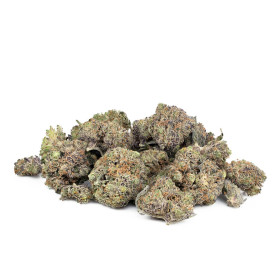CBD
First Time Smoking Weed? Start Here
Before you visit a dispensary, if you are completely new to smoking weed, you should familiarize yourself with strains and cannabinoids. Strains are the various cannabis varieties. Similar to how there are numerous plant species within the same family.
The plant is known by many other names: Marijuana, cannabis, pot, dope, and grass. It’s all the same psychoactive compound produced from the cannabis plant, sold under several labels. Generally, it can be smoked, consumed orally, or vaped. Most people smoke weed for recreational purposes. Yet, more physicians are prescribing it for certain medical disorders and ailments.
The effects of Marijuana on the human body are still being explored, even though people have used it for years. Now that it’s more readily available, it’s crucial to understand how it affects your body.
What is Medical Marijuana?
The American Lung Association supports ongoing research into the impact of marijuana use on lung health and applauds the efforts of scientists currently studying the plant.
People thinking about medical Marijuana should discuss their options with their physician, who may recommend an alternative delivery method (such as edibles or vaporization).
Understanding how cannabis might affect your health is more vital than ever as legalization efforts spread across the globe. Please find out how it influences your body by reading about it.
Methods of Smoking Weed and Utilization
One of the many benefits of Marijuana is its versatility. In most cases, marijuana users can feel the effects almost immediately after starting to smoke:
- Paper tobacco cigarettes
- Portable pipes
- Water bongs
- Sticky cannabis resins from the plant (More THC can be found in resins than in normal Marijuana)
- Marijuana-infused into foods and cocktails
The Effects of Smoking Marijuana
Ingesting cannabis in various ways can produce various physiological responses. When you smoke Marijuana, the molecules go straight from your lungs into your circulation, where they can then be sent to your brain and other organs. Effects could start showing up in as little as a few minutes.
It takes time for cannabinoids in edibles and beverages to be metabolized by the liver and digestive system before they can enter the bloodstream. Possible onset times range from minutes to hours.
The effects of cannabis on the body are a contentious topic. Effects on people’s bodies and minds range from injury and discomfort to easing of pain and calmness.
Marijuana Can Potentially Alter Your Mental State
Cannabis (THC), the primary psychoactive component, activates the brain’s reward circuitry. That triggers the release of dopamine, which provides a calm, happy state of consciousness.
Around 30 minutes is when the THC is at its strongest, and anywhere from one to 3 hours is when the effects start to fade. It could be several hours before you feel completely sober after consuming alcohol and Marijuana.
Smoking Marijuana and Your Mental Health
Using Marijuana isn’t a walk in the park for everyone. It’s common for people to feel worried, scared, terrified, or delusional as a result. Marijuana use may increase the risk of clinical depression and exacerbate the symptoms of pre-existing mental disorders. Researchers haven’t pinpointed a specific cause yet.
Chronic Use of Marijuana
Cannabis smoking can be an addiction. That implies you cannot stop using it even if it negatively affects your interactions, employment, health, or wealth. Risks increase with both earlier initiation and more frequent use of Marijuana.
Generally, Marijuana is any part of the cannabis plant that has been dried and used for its psychoactive effects, including the leaves, flowers, stems, and seeds. Nearly 500 compounds, including THC, a mind-altering substance linked to harmful health effects, are found in Marijuana, making it a psychoactive drug.
Heavy marijuana use may cause paranoia and a loss of reality check, leading to the perception of things that aren’t there.
Marijuana and Your Cognitive Abilities
Using Marijuana affects one’s cognitive abilities, making it easier to focus and remember new knowledge. It is a transient impact that lasts for a day after you quit smoking.
But, heavy marijuana use, especially for young people, may have greater long-lasting consequences. Results from imaging studies involving young adults suggest that marijuana use may cause structural changes in the brains of some of them. They had fewer connections in brain regions responsible for awareness, learning, and memory.
Marijuana and Respiration
Smoking weed might aggravate and tighten your lungs. The same breathing difficulties as tobacco smokers may occur with regular use. That may indicate a persistent cough with discolored mucus.
Infections in the lungs may spread more quickly. One possible explanation is that too much THC lowers the immune system of its consumers.
Possible Increase in Appetite
Pot users may be familiar with the “marijuana munchies,” a craving for savory, sugary, or fatty meals after consuming the drug.
THC is responsible for the psychotic episodes that many cannabis users experience. At the same time, it’s mostly to blame for the enhanced appetite while on the drug.
Cannabis Mixed With Alcohol
As opposed to drinking alcohol alone, the risks associated with driving drunk or getting into legal, economic, or private trouble more than double when Marijuana is included in the cocktail.
The Health Effects of Marijuana on the Human Body
Regardless of how you consume cannabis, you should be aware that Marijuana has short- and long-term effects, including altered perception and elevated heart rate. The following are the effects of Marijuana on your body:
Smoking Weed Effects on the Respiratory System
Marijuana smoke may weaken the lungs’ natural defenses against infection by destroying mucus-producing cells that assist in clearing the air of dust and germs. Toxic compounds, including ammonia and hydrogen cyanide, are present in cannabis smoke and can irritate the bronchi and lungs, much like tobacco smoke.
Though no hard data shows that real infections are more common among marijuana smokers, these effects potentially raise the risk of lower respiratory infections.
Smoking weed regularly increases your risks of developing congestion, coughing, and phlegm production. There is an elevated danger of catching bronchitis or other lung infections.
Marijuana and Heart Disease
Through inhalation, THC travels to the rest of your body. Your heart rate may elevate by 20 to 50 bpm in minutes. Extreme heart rate can last up to 3 hours.
Your heart’s need for oxygen will increase as a result of this. Smoking weed leads to the possibility of having a heart attack. The risk increases significantly with age or pre-existing heart conditions.
Medical Marijuana During Pregnancy
Increasing numbers of women during pregnancy are turning to Marijuana as a risk-free, all-natural remedy for morning sickness. However, substantial and fatal hazards are associated with using Marijuana while pregnant.
Women who use Marijuana throughout pregnancy are more likely to have babies born prematurely or weighing less than average. Yet, scientists do not have enough information to establish whether or not these children will develop at a higher risk for academic difficulties, substance abuse, or other future problems.
Research shows that using Marijuana while lactating also risks the infant’s health. Breast milk containing THC or other marijuana compounds may increase a child’s risk of having learning difficulties and poor memory later in life.
Cannabis Smoking and Cancers
Smoking Weed is not associated with an increased risk of developing head, neck, or lung cancer, according to available research. Heavy marijuana usage has been linked to one form of testicular cancer, although the evidence is weak.
Effects of Smoking Weed on the Brain
The effects of Marijuana are widespread in the nervous system and brain. Your reflexes, balance, and coordination could all be affected by Marijuana. Since everything has changed, you should not be on the road. Cannabis’ anti-inflammatory and antispasmodic effects help a lot of people feel better.
Dopamine, a brain chemical connected to feelings of happiness, is released in large quantities in response to THC consumption. You can experience a heightened perception of time and other senses.
Marijuana Inhalation Effects Through a Vaporizer
Little is known about the possible lung health implications of breathing Marijuana or marijuana-derived products through methods other than smoking.
The inhalation of marijuana vape pens or tinctures may have comparable effects on respiratory health as e-cigarettes. Breathing issues may be caused by dabbing or inhaling flash-vaporized Marijuana concentrates.
First Time Trying Cannabis? Buy only from a Legit Source!
In Canada, Green Society is your go-to online dispensary for high-quality Marijuana. We take great care to ensure that your marijuana products reach you safely and in an unassuming container when you place an order with us.
Choose the strain you like most from our offerings, and contact us at [email protected] if you have any questions.















